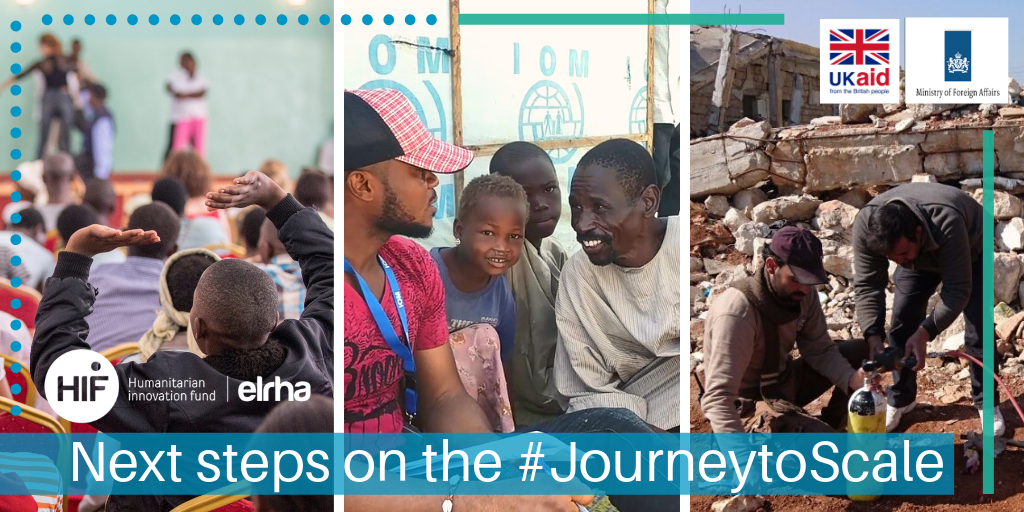Shaping the future: Our strategy for research and innovation in humanitarian response.

Shaping the future: Our strategy for research and innovation in humanitarian response.

Having supported over 150 humanitarian innovations at all stages of the innovation cycle, we noted that many don’t progress to being scaled up or out of an organisation. It was clear that with so much time, money and resource going into developing and testing innovations, the sector simply couldn’t afford for promising ideas to keep becoming part of the ‘pilot graveyard’.
Equipped with the knowledge of why innovations get stuck, we now advise and influence the community on the best ways of scaling up innovation. We support some of the most promising innovations and organisations with a package of grant funding, bespoke mentoring, and technical tools to help them scale.
In October 2018 we published our ‘Too tough to scale? Challenges to scaling innovation in the humanitarian sector’ report which explores why more innovations aren’t successfully scaling. It identifies 13 key barriers – from funding to uptake. And for each barrier it pinpoints the questions that need addressing and the actions required from specific groups of people to start breaking the barriers down.
The report is a culmination of our own experiences in managing our innovation grantees since 2011. It also draws on the experiences of our grantees, our fellow innovators in the humanitarian system and those of the social and development sector. Our teaser video which launched the report was viewed more than 17,000 times in less than three months. The report itself achieved nearly 2,000 views, and 20,000 social media impressions.
Publishing Too tough to scale? is only the start of the work that is needed to create the right environment for innovations to achieve real impact in humanitarian crises. We’re pushing for collective action by key stakeholder groups to tackle some of the most pressing barriers to scale. Our planned series of round-table discussions will further boost the shift in momentum towards facilitating scaled-up innovation.
System-wide issues need system-wide collaboration
We began our ‘Journey to Scale’ initiative in 2016, working with three organisations that had proven innovations. We helped them identify the right pathway to scale, supporting them along the way with bespoke mentoring, tools and advice.

The initiative will draw to a close in 2019 and we’ll be sharing our learning, outputs and impacts from this work with the wider humanitarian community, including our Progress to Scale Framework – a tool within our Humanitarian Innovation Guide.
“Three key learnings have emerged from this process: firstly, flexible funding is valuable and re-budgeting processes allow for pivots (changes in direction) that are needed and provide much-needed funding to build teams and organisations to scale innovations. Secondly, money isn’t enough on its own - providing non-financial technical and strategic support has significant benefits. Lastly, scaling takes time - we dedicated two years, and the teams made a lot of progress, but the timescale was too short.”
Ian Gray, lead consultant working with us on our Journey to Scale initiative.

 Please upgrade your browser
Please upgrade your browser
You are seeing this because you are using a browser that is not supported. The Elrha website is built using modern technology and standards. We recommend upgrading your browser with one of the following to properly view our website:
Windows MacPlease note that this is not an exhaustive list of browsers. We also do not intend to recommend a particular manufacturer's browser over another's; only to suggest upgrading to a browser version that is compliant with current standards to give you the best and most secure browsing experience.